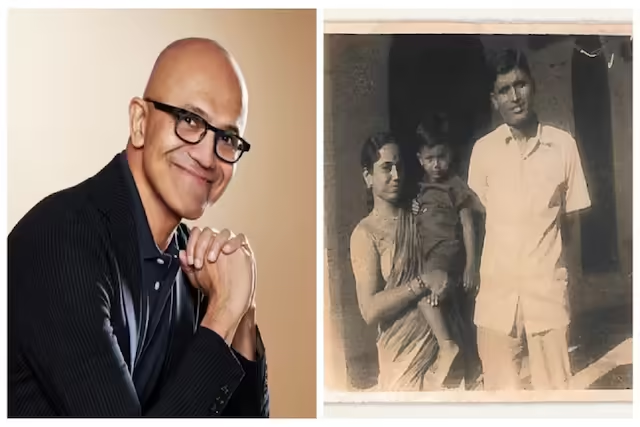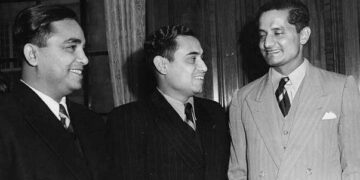Ashfaq Ulla Khan (English: Ashfaq Ulla Khan; born- October 22, 1900 AD, Shahjahanpur, Uttar Pradesh; death- December 19, 1927 AD, Faizabad) is counted among the famous immortal martyr revolutionaries of India. Ashfaq Ullah Khan, who happily sacrificed his life for the freedom of the country, was a strong advocate of Hindu-Muslim unity. He was hanged in Faizabad jail on 19 December 1927 in connection with the ‘Kakori incident’. Ashfaq Ullah Khan was the first Muslim who was sentenced to death in a conspiracy case. His heart was very big and his thoughts were very generous. Narrow-minded sentiments related to Hindu-Muslim unity could never enter his heart. It was his natural nature to treat everyone equally. Hard work, dedication, perseverance, happiness, these were the special qualities of his nature.
Ashfaq Ullah Khan was born on October 22, 1900 at a place called ‘Shahidgarh’ in Shahjahanpur district in Uttar Pradesh. His father’s name was Mohammad Shafiqullah Khan, who belonged to a Pathan family and mother was Mazhurunishan Begum. His mother was very beautiful and was counted among the beautiful women. His family was quite prosperous. All the family members were in government jobs. But Ashfaq was unhappy with foreign slavery since his student days. He was desperate to do something for the country. The revolutionaries of Bengal had a great influence on his life.
In his childhood, Ashfaq Ullah Khan was not interested in reading and writing. He enjoyed swimming in the pond, riding a horse and hunting with his brother’s gun. He was a well-built, handsome and healthy young man. His face was always bright and he always spoke loving words to others. Since childhood, he had immense love for the country. He read with great interest the stories of movements carried out for the welfare of the country.
Ashfaq also used to write poetry etc. He was very fond of it. He had written very good poems, which were full of patriotism. In poetry he used to write his surname as Hasrat. He never tried to get his poems published. He said, “We don’t have to create a name. If we wanted to create a name, wouldn’t we have left revolutionary work and taken up leadership?” The poems written by him were often sung by the revolutionaries of ‘Kakori incident’ while coming and going to the court.
Expressing his feelings, Ashfaq Ullah Khan had written that – The world is the enemy, the world is the enemy, those who were our own are strangers, will you listen to the story of my plight.[1]
Friendship with Ram Prasad Bismil
Ashfaq Ullah Khan started getting influenced by the movements and revolutionary activities going on in the country. Gradually revolutionary feelings started developing in them. He was very curious to meet someone who was a member of the revolutionary party. At that time the case of ‘Mainpuri Conspiracy’ was going on. Ashfaq studied in school in Shahjahanpur only. In the ‘Mainpuri Conspiracy’, a warrant was also issued in the name of a young man from Shahjahanpur. That young man was none other than Ramprasad Bismil. Ashfaq was very happy to know that in his city there was a man as he wanted. But to avoid the matter, Ramprasad Bismil was absconding. When all the political prisoners were released by royal proclamation, Ramprasad Bismil also came to Shahjahanpur. When Ashfaq came to know about this, he tried to meet Bismil. Wanted to meet him and discuss the conspiracy. At first Ramprasad Bismil hesitated. But then he was so pleased with Ashfaq’s behavior and behavior that he made him his very close friend. In this way he came into revolutionary life. Since his debut in revolutionary life, Ashfaq Ullah Khan always tried to ensure that other Muslim youth like him become members of the revolutionary party. He was a great supporter of Hindu-Muslim unity.
Mahatma Gandhi had an influence on Ashfaq Ullah Khan’s life from the very beginning, but when Gandhiji withdrew the ‘Non-cooperation Movement’ after the ‘Chauri Chaura incident’, he felt extremely pained. An important meeting of revolutionaries was held in Shahjahanpur on August 8, 1925 under the leadership of Ramprasad Bismil and Chandrashekhar Azad, in which a plan was made to loot the government treasury being carried in the train for weapons. The wealth that the revolutionaries wanted to loot was actually grabbed by the British from the Indians. On August 9, 1925, Ashfaq Ullah Khan, Ramprasad Bismil, Chandrashekhar Azad, Rajendranath Lahiri, Thakur Roshan Singh, Sachindra Bakshi, Keshav Chakraborty, Banwari Lal, Mukund Lal and Manmath Lal Gupt executed their plan at ‘Kakori’ near Lucknow. Looted the government treasury being carried by train. In ‘Indian History’ this incident is known as “Kakori incident”. This incident was carried out by these freedom fighters by changing their names. Ashfaqullah Khan named himself ‘Kumarji’. After this incident, the British government went mad and arrested many innocent people and put them in jail. Due to the betrayal of their own people, all the revolutionaries involved in this incident were caught one by one, but Chandrashekhar Azad and Ashfaq Ullah Khan were not caught by the police.[2]
After this incident, Ashfaq Ullah Khan left Shahjahanpur and came to Banaras and worked in an engineering company there for ten months. After this he planned to go abroad for engineering so that he could continue helping his revolutionary comrades with the money earned from there. To go abroad, he came in contact with a Pathan friend of his in Delhi, but his friend turned out to be treacherous. In greed of reward, he gave information to the British police and thus Ashfaq Ullah Khan was caught.
Ashfaq was subjected to many types of torture in jail. When these tortures had no effect on him, the British tried to make him a government witness by playing various tricks, but the British could not succeed in their intentions in any way. The British officers even told him that even if India became independent, it would be ruled by Hindus and not by Muslims and Muslims would not get anything. In response to this, Ashfaqullah Khan told the British officer that – “The trick of ruling by dividing will have no effect on them and India will remain independent”. He told the British officer – “You people can no longer suppress the freedom struggle by creating divisions between Hindus and Muslims. I will never become a government witness against my friends.”[3]
On December 19, 1927, Ashfaq Ullah Khan was hanged in Faizabad jail. In this way this great son of India sacrificed his life for the country. His martyrdom further strengthened Hindu-Muslim unity in the country’s freedom struggle. Even today, his sacrifice serves to unite the countrymen.
There are many incidents related to Ashfaq Ullah Khan, which prove him to be a supporter of Hindu-Muslim unity –
For Ashfaqullah Khan, temple and mosque were the same. Once when there was a fight between Hindus and Muslims in Shahjahanpur and fighting started in the city, at that time Ashfaq was sitting in the Arya Samaj temple with Bismil ji. Some Muslims came near the temple and got ready to attack. Ashfaq Ullah Khan took out his pistol and came out of the Arya Samaj temple and said to the Muslims, “I am a staunch Muslim, but every brick of this temple is dear to me. Near me, the prestige of temple and mosque is equal. If anyone looks towards this temple, he will be a target of bullets. If you want to fight, then go out on the road and fight with all your heart.” Hearing his lion roar, everyone lost their senses and no one had the courage to attack the Arya Samaj temple. This was Ashfaq’s public love. Even more than this he loved Ramprasad Bismil ji.[4]
Once Ashfaq Ullah Khan fell very ill. At that time they started calling ‘Ram-Ram’. Parents told many times that you are a Muslim, say Khuda-Khuda, but this voice did not reach the ears of the true worshiper of love and he kept saying ‘Ram-Ram’. Parents and other relatives did not understand this. At the same time another person came and told his relatives that he was remembering Ramprasad Bismil. They call each other Ram and Krishna. So a man went and called Bismil ji. Seeing him, Ashfaq said, “Ram, you have come.” At that time his family members came to know about Ram. Due to these actions of Ashfaq, his relatives used to say that he had become an infidel, but he never cared about these things and always remained firm on his fast with a concentrated mind.[4]






